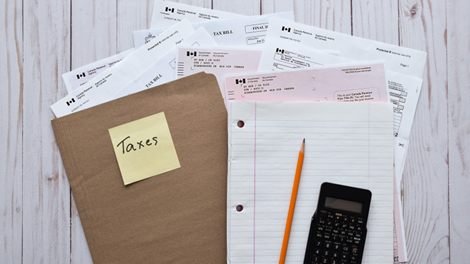Last updated: February 07 2023
Taxpayer Bill Of Rights Bolstered With A New Form

The burden of proof for accurate tax filings is always on the taxpayer, but in return, the taxpayer has several basic tax filing rights enshrined in the sixteen “Taxpayer’s Bill of Rights, ” together with five additional rights for small business. Now there is an additional tool when CRA fails to provide you with your rights to accurate and timely information: Form RC193 Service Feedback Form.
Taxpayer Rights. These are key to Canada’s self-assessment system. You have the right to self-assess and arrange your affairs to pay only the correct amount of tax – no more and no less. You also have the right to privacy and confidentiality of your taxation records, appeal rights when you disagree with CRA assessments and impartiality in managing disputes to conclusions.
Right #6 is especially important: You have the right to complete, accurate, clear, and timely information. CRA goes on to say: “You can expect us to provide you with complete, accurate, and timely information in plain language explaining the laws and policies that apply to your situation.” Note: that you’ll have to work to find that information though: “We have a wide variety of information available electronically, by telephone, and in print (general and specialized publications)”.
CRA also notes: “Our enquiries agents have extensive training and reference tools that let them respond quickly and accurately to your questions and provide you with the highest quality of service,” and “If you feel the information you received from us was inadequate, we want you to let us know.”
That’s where form RC193 comes in. Be sure to use it this tax season if you encounter delays or service that’s not of the highest quality.
For small business, the Taxpayer’s Bill of Rights notes that CRA is committed to administering the tax system in a way that minimizes the costs of compliance. It goes on to .png) say:
say:
“We recognize that small businesses need to minimize the time, effort, and costs they incur to comply with the tax legislation we administer. We have to balance this concern with our responsibility to administer the legislation efficiently and economically. We try to make our dealings with small business as straightforward and convenient as possible.”
Small business, meanwhile, needs to balance the costs of essentially being tax collectors and remitters for the CRA when it comes to payroll and GST/HST and now the new Luxury Tax on cars, boats and airplanes. Everyone is trying, but the reality is that tax law – especially the rules around the CEWS – Canada Emergency Wage Supplement – were extremely complex, and the information was always not timely and, in some cases, not accurate (the definition of gross and net income, for example, for the purposes of collecting CERB.)
Bottom Line. Reciprocity in a tax system based on self-assessment: if taxpayers must bear the burden of proof, there must be an equal obligation for the tax department to ensure all efforts are made to help Canadians mitigate their tax costs by communicating in a simple, understandable and effective manner what the law is, how people can comply with it, and allowing several appeal avenues that allow people to get it right.
Additional Educational Resources – Check out the DMA™ - Corporate Tax Services Specialist Designation. With your in-depth knowledge and high-level skills, you’ll assist clients with accurate data processing and compliance procedures. You’ll offer trusted advice on financial transactions and statements.
Evelyn Jacks is Founder and President of Knowledge Bureau, holds the RWM™, MFA ™, MFA-P™ and DFA-Tax Services Specialist designations and is the best-selling author of 55 books on tax filing, planning and family wealth management. Follow her on twitter @evelynjacks.
©Knowledge Bureau, Inc. All rights Reserved
